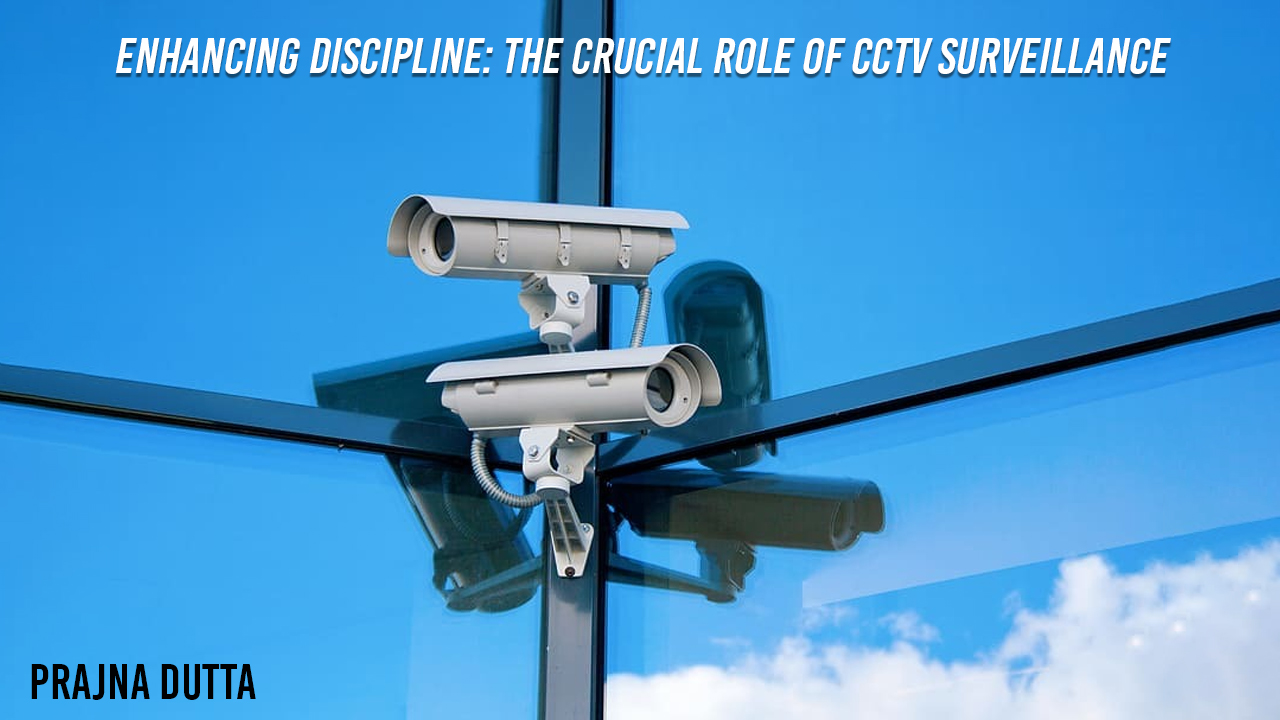Introduction:
Maintaining discipline within various environments, whether it be schools, workplaces, or public spaces, is essential for fostering a safe and orderly atmosphere. In recent years, Closed-Circuit Television (CCTV) systems have emerged as a powerful tool to promote discipline and deter undesirable behavior. By providing constant monitoring and a sense of accountability, CCTV surveillance plays a pivotal role in shaping behavior, preventing misconduct, and ensuring the overall well-being of individuals and communities.
1. Promoting a Sense of Security:
CCTV cameras act as a visible deterrent against criminal activities and misconduct. Their presence alone can discourage potential wrongdoers from engaging in inappropriate behavior, as the risk of being caught and identified increases significantly. By creating a perception of constant surveillance, CCTV systems contribute to a safer environment, instilling a sense of security among occupants.
2. Real-Time Monitoring and Prompt Response:
One of the key advantages of CCTV surveillance is its ability to provide real-time monitoring. With cameras strategically placed in critical areas, security personnel or authorities can actively observe and analyze situations as they unfold. Prompt response becomes possible, enabling immediate action to prevent or address incidents such as theft, vandalism, violence, or unauthorized access. The knowledge that actions are being monitored helps maintain discipline by minimizing the opportunity for misconduct.
3. Accountability and Behavioral Improvement:
The presence of CCTV cameras inherently fosters a culture of accountability. Individuals are more likely to adhere to rules and regulations when they know their actions are recorded and can be reviewed later. Knowing that their behavior is subject to scrutiny encourages people to act responsibly, leading to a reduction in disciplinary issues. Moreover, in cases where misconduct does occur, CCTV footage serves as concrete evidence, facilitating fair investigations, and appropriate disciplinary measures.
4. Enhancing Safety in Educational Institutions:
Educational institutions greatly benefit from CCTV systems as they play a pivotal role in maintaining discipline and enhancing student safety. These systems can monitor hallways, classrooms, playgrounds, and other areas, ensuring the well-being of students and staff. By discouraging bullying, violence, or other forms of misconduct, CCTV surveillance fosters an environment conducive to learning and personal growth.
5. Public Spaces and Crime Prevention:
Public spaces such as parks, shopping malls, and transportation hubs are susceptible to criminal activities and antisocial behavior. The presence of CCTV cameras can deter such incidents by providing continuous monitoring and surveillance. Additionally, the recorded footage can aid law enforcement in identifying and apprehending offenders, increasing the overall safety of public areas.
6. Addressing Workplace Misconduct:
CCTV surveillance plays a vital role in maintaining discipline and ensuring a productive work environment. It discourages theft, unauthorized access, and other forms of misconduct that can disrupt operations. Employees are more likely to adhere to company policies and guidelines when they know they are being monitored, reducing instances of slacking, harassment, and other inappropriate behavior.
7. Evidence for Investigations and Legal Proceedings:
CCTV footage serves as crucial evidence in investigations and legal proceedings. The recorded video can provide vital information about the sequence of events, identify individuals involved, and help establish the truth. This not only aids in resolving disputes but also acts as a deterrent against false accusations or claims. The availability of concrete evidence strengthens the disciplinary process and ensures fair outcomes.
8. Monitoring and Regulating Public Behavior:
CCTV surveillance can be instrumental in monitoring and regulating public behavior in crowded areas or during events. By capturing footage of public spaces, authorities can identify and respond to situations that might escalate into disorder or pose risks to public safety. This proactive approach helps maintain discipline, prevents disturbances, and allows for swift interventions if necessary.
9. Training and Professional Development:
CCTV footage can be used as a valuable training and development tool. By reviewing recorded incidents, organizations can identify patterns, assess weaknesses, and implement targeted training programs. This enables employees, security personnel, and other stakeholders to learn from past experiences, enhance their skills, and improve their responses to disciplinary situations.
10. Parental Involvement and Peace of Mind:
In educational institutions, CCTV systems can provide parents with peace of mind regarding the safety and well-being of their children. By allowing parents to remotely view live or recorded footage, schools can foster a sense of transparency and collaboration. This involvement encourages parents to reinforce discipline at home and work in partnership with the school to address any behavioral concerns.
11. Traffic Management and Road Safety:
CCTV cameras play a vital role in ensuring discipline and safety on roads. By monitoring traffic flow, identifying violations, and capturing incidents, authorities can enforce traffic regulations and deter reckless driving. The presence of CCTV surveillance encourages responsible behavior, reduces accidents, and promotes a culture of adherence to road rules.
12. Continuous Improvement and Prevention:
CCTV surveillance systems offer an opportunity for continuous improvement and prevention of disciplinary issues. By analyzing footage and identifying recurring problems or vulnerabilities, organizations can implement measures to address underlying causes. This proactive approach helps minimize future incidents, promotes a disciplined environment, and fosters a culture of learning and growth.
Conclusion:
In an increasingly complex and interconnected world, CCTV surveillance systems have emerged as a powerful tool for promoting discipline. By creating a sense of security, enabling real-time monitoring, fostering accountability, and providing crucial evidence, these systems contribute significantly to maintaining order, preventing misconduct, and ensuring the safety of individuals and communities. While striking the right balance between surveillance and privacy is essential, the benefits of CCTV for discipline enhancement cannot be overstated, making it an indispensable asset in today's society.

Comments